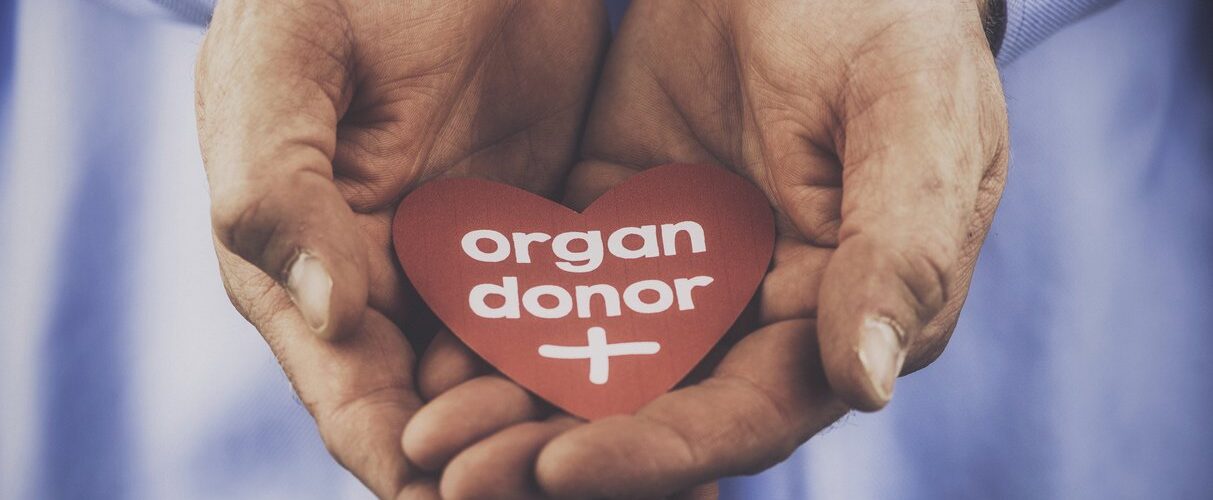Bishops’ guidelines on Organ Donation
Organ Donation: A brief guide for Catholics
Spring 2020
This brief guide presents Catholic teaching on organ donation, answers common questions Catholics may have and provides sources for further information and reflection.
The Organ Donation (Deemed Consent) Act 2019
The Organ Donation (Deemed Consent) Act became law on 15 March 2019 and will come into force in Spring 2020. Across the UK, around three people die each day due to a lack of availability of donated organs. The law is being changed in the hope that it will increase the supply of organs to help save and improve more lives. The new system now requires that you ‘opt-out’ if you do not wish to donate your organs and tissue, otherwise you may be considered a donor.
A message from Bishop Paul Mason, the Catholic Bishop responsible for Healthcare and Mental Health:
“Preparing for death should not be feared. These guidelines hope to provide you with some information to help you make a well-informed decision with regards to donating your organs after death. It is important to discuss this with your family and loved ones so that they are aware of your decision and can honour it. In turn, it is hoped that this may help to start a conversation so that you too are able to makean informed choice about loved ones when the time comes.”
Catholic Teaching on Organ Donation
The Catechism of the Catholic Church states that, ‘Organ donation after death is a noble and meritorious act and is to be encouraged as an expression of generous solidarity’ (2296). In response to the government Consultation on introducing ‘opt-out’ consent for organ and tissue donation in England, the Catholic Media Association (UK) and the Catholic Union of Great Britain stated that, ‘It is an altruistic act offree giving and a genuine expression of charity that looks beyond the death of the donor towards the gift of life to others. It 2offers a chance of health and even of life itself to the sick who sometimes have no other hope’.
Pope John Paull II, in his Address to the 18th International Congress of the Transplantation Society (2000) said,
“…There is a need to instil in people’s hearts, especially in the hearts of the young, a genuine and deep appreciation of the need for brotherly love, a love that can findexpression in the decision to become an organ donor.”
Whilst the Catholic Church considers voluntary organ donation as an intrinsic good, Catholics also maintain the right to exercise a decision as to what happens to their body after death, otherwise this undermines the concept of donation as a gift. Christians value the body as the temple of the Holy Spirit (1 Corinthians 6:19) and look forward to a resurrection of the body at the end of time.
Yet, it is the Christian belief that nothing that happensto our body, before or after death, can impact our relationship with God:
“For I know that my Redeemer lives… and after my skin has been thus destroyed, then from my flesh I shall see God, whom I shall see on my side, and my eyes shall behold,”(Job 19:25-27)
FAQ and where to seek further information:
What is organ donation?
Organ donation is giving an organ to someone who needs a transplant.
This donation will greatly enhance or save the life of the person who receives the transplanted organ.
You can donate some or all of your organs and tissue. This includes the heart, lungs, kidneys, liver, corneas, pancreas, tissue and small bowel. You can donate after death or donate a kidney or part of your liver while you’re alive.
How do I register my decision?
You can find more information via the Organ Donation NHS website and register your decision at: https://www.organdonation.nhs.uk/register-to-donate/. Here you will be able to access the Organ Donation Register (ODR), record your faith/beliefs, or ‘opt-out’. If you have already registered via the ODR, you can change your decision, or withdraw (remove your name) from the register at any time via these means too.
Individuals registering as organ donors on the NHS Organ Donor Register are now able to state on their registration whether or not they would like the NHS to speak to their family, and anyone else appropriate, about how organ donation can go ahead in line with their faith or belief system.
Will my relatives ultimately get to decide what happens to my organs and tissue after death?
Under the Code of Practice, even after the new system is implemented, a specialist nurse will always discuss with the deceased’s family whether their loved one would have wished for their organs and tissue to be donated. This process is easier if this has been discussed previously and if the potential donor has registered their decision via one of the ways outlined above. NHS staff will work with the family members to honour this decision. Family members can also provide important information about the person’s history to help ensure the donor’s organs can be transplanted safely.
Catholic chaplaincy support
In the event that a loved one is facing the prospect of donating organs, be assured that at any point in this process you may seek the support of the hospital chaplain who can offer pastoral care. Many hospital chaplains work with people of all faiths. If you specifically want a Catholic Chaplain you can ask for this and the hospital has an obligation to help you access that support as part of its equality duty.
Where to seek further information:
- Information/Questions and answers around the law change: https://www.organdonation.nhs.uk/opt-out-faq/
- Information and resources regarding the Catholicperspective on organ donation: https://www.cbcew.org.uk/podcast/blood-and-organ-donation/
- Further information on the ethics of organ transplantation can be found in the 2014 report, ‘On the Ethics of Organ Transplantation: A Catholic Perspective’ by The Anscombe Bioethics Centre at http://bioethics.org.uk/Ontheethicsoforgantransplantationfinal.pdf.

